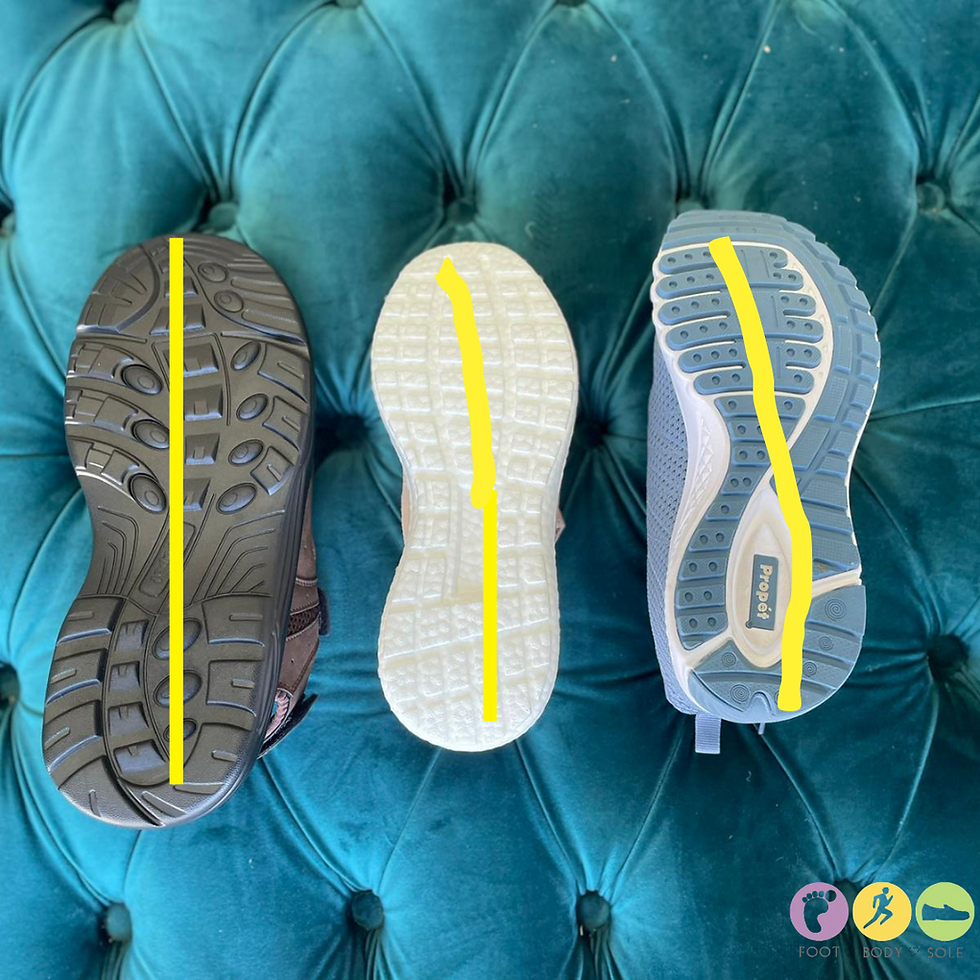Do you have tight calves ? Why is it important to prevent pain.
- Foot Body Sole
- Apr 21, 2021
- 2 min read
Updated: Apr 22, 2021
What does tight calves mean ?
The calf area in the leg is made up of 2 different muscles the Gastrocnemius which is made up of two different heads and the Soleus, these muscles join at the Achilles tendon and attach onto the Calcaneus otherwise know as the heel bone.
When a Podiatrist assesses your lower limb they may find that the range of motion at the ankle joint is limited and that can be due to tight calves.

Often when we think of tight calves the first thing you might think of is stretching, however "tightness" can also be linked to weakness, so strengthening the muscle is just as important as stretching.
This can be caused by many things, wearing high heels all the time, exercising without a gradual build up or " too much, too soon" or wearing the incorrect shoe for an activity.
But how can tight calves cause an issue ?
Other than limiting sporting performance, having tight muscles in the back of the leg can be generally uncomfortable. Some studies have found that having a limited range of motion in the ankle can increase the chance of injury. Your biomechanics or the way in which you walk may be affected by this and then other injuries can occur due to you not using your foot and ankle in the most functional way.
It is important to note that tight calves are different to getting cramps in the calves when walking. This is could possibly be an issue with circulation and needs to be addressed quickly.
Tips for home
Complete an exercise program
Massaging the area
Use the RICE principal - Rest, Ice, Compression and Elevation
Wear supportive footwear and make sure your shoes are appropriate for the activity that you are doing.

Increase physical activity gradually
Foam rolling
How can a podiatrist help ?
Trigger point dry needling into the posterior leg
Interferential Therapy to help relax tight tissues or rehab old injured tissues
Designing an exercise program to improve strength
Assess any leg length discrepancies and orthotic additions or heel lifts

Lower Limb Biomechanical assessment to help to get to the bottom of the issue
Footwear education
Giving tips for gradually building up exercise
If you have any questions at all about your calves, we are more than happy to answer them at Foot Body Sole! Our Footwear Specialists and Podiatrists can also recommend shoes! Give us a call on 1800 778 316 or visit us in store in Albert Park.









Comments